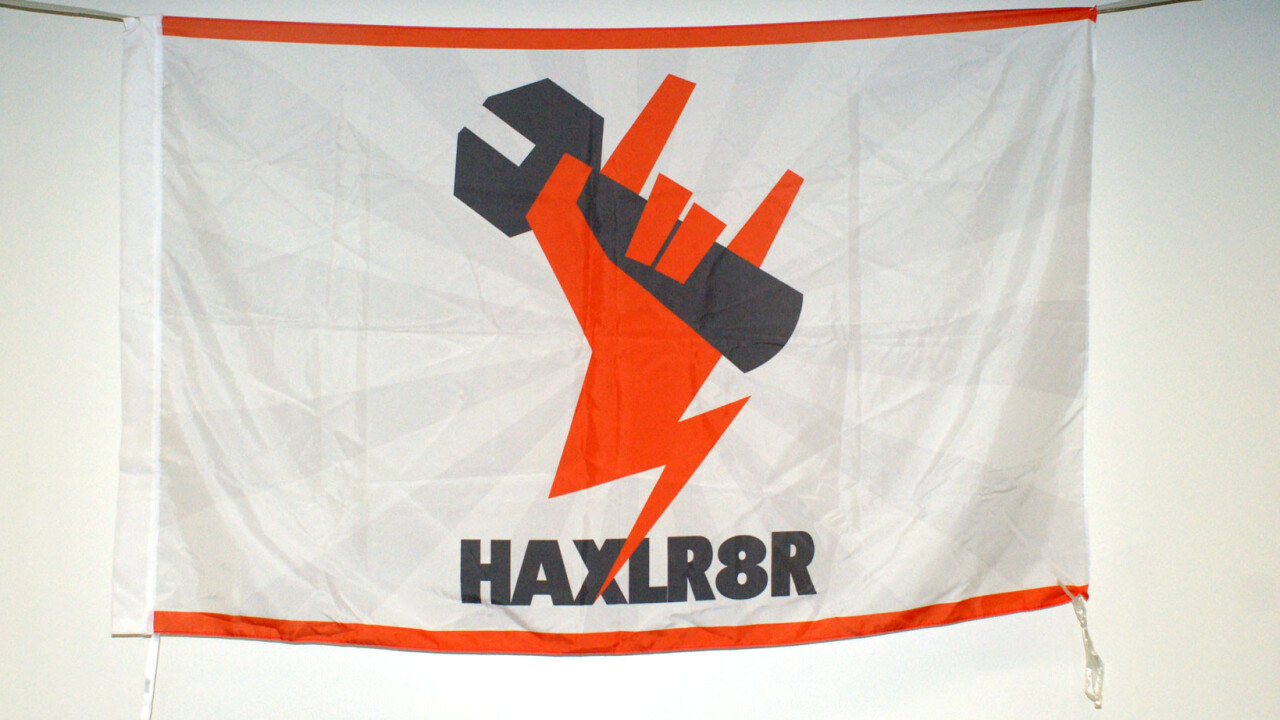
The HAXLR8R accelerator may sound like the X-Games/13 year-old leet-speak of accelerators with all the capital letters and the use of an “8” in its name. But in reality, it’s demo day at the Autodesk gallery showcased 10 companies with hardware products that might actually be worthy of your hard-earned cash.
In particular, four caught our eye. From skateboarding to dropping off your keys at the local convenience store, these four ideas are the result of 111 days of work in Shenzhen China they’re working with manufacturers and fine tuning their business hoping to solve problems via hardware instead of software.
Syrmo
Nearly every company has released a wrist-bound tracker. Or, they’re working on something that tracks every step you take. Yes, Syrmo is a tracker, but it’s for the extreme sect that skateboard. The tracker is mounted between the board and the trucks that hold the wheels to the bottom of a skateboard. It tracks your ride, each trick, and geolocation. After pulling off a trick, skaters can access the companion app to see a 3D representation of their skateboard pulling off that trick.
The app also features video functionality that syncs each trick and geolocation with the footage shot. A friend could shoot a video of you pulling off a trick and the in-app editing software automatically trims the video to the moment of a trick and slows the video down right as the trick is pulled off. Considering the millions of skateboarding videos on YouTube, the team already has a built in consumer base. The Syrmo kickstarter is live now.
Hoard
The new sharing economy presents a new set of problems. One of the biggest pains is scheduling the handover of keys to clients. Hoard hopes to solve that issue by placing smart lockers in nearby businesses. The boxes are tied to a smartphone app. Using the app, users can reserve a locker and create a code for a box. They then drop the keys in their designated box and share the code with whoever needs those keys, possibly an Airbnb guest.
The service launched a beta two weeks ago in six locations in Berlin. For expansion, the company is reaching out to Airbnb customers in cities like New York. Users can chose from two payment solutions. A single use box will cost $3 per use and a $15 a month subscription will give you unlimited access to a smart locker.
OTTO
The Raspberry Pi has been the platform base of hundreds, if not thousands, of devices. But the OTTO is the first commercial product to use the new Raspberry Pi compute module. The hackable camera ships with various modes that are controlled via a companion app. The modes include a GIF maker that is controlled by a crank on the camera and a Deal With It meme mode that determines where a photo subject’s eyes are and drops sunglasses on them.
But the camera does more than let you create cat GIFs in real time. Using the flash shoe and USB or Wi-Fi, users can attach Arduino boards to the camera to add a variety of features. The OTTO will be available via Kickstarter starting on Thursday for $199. Once it hits full production, it’ll be available for $249.
Shot Stats: Challenger
Track every hit of a tennis ball with the Shot Stats’ Challenger motion tracker and string dampener. The tracking module that sits at the base of the racket head gives instant access to speed and shot numbers via the integrated display. For more robust data, the companion app keeps detailed information about your game including a heat map of your hits.
Like Syrmo, the app can also be used to shoot video. The video can include data overlays of your swing as it happens. The app’s social features include sharing video with the data overlay, photos, location and metrics. Shot Stats said that they have already entered an exclusive deal to sell the Challenger at Tennis Warehouse next year. But, like most of the startups presenting today, they also have a Kickstarter campaign.
Get the TNW newsletter
Get the most important tech news in your inbox each week.









